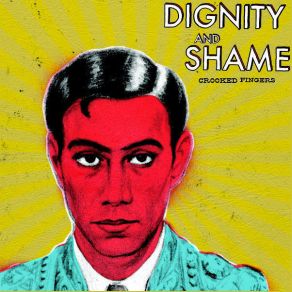Dignity and Shame
Download links and information about Dignity and Shame by Crooked Fingers. This album was released in 2005 and it belongs to Indie Rock, Country, Alternative Country, Alternative, Songwriter/Lyricist genres. It contains 12 tracks with total duration of 50:01 minutes.

|
|
|---|---|
| Artist: | Crooked Fingers |
| Release date: | 2005 |
| Genre: | Indie Rock, Country, Alternative Country, Alternative, Songwriter/Lyricist |
| Tracks: | 12 |
| Duration: | 50:01 |
| Buy it NOW at: | |
| Buy on iTunes $9.99 | |
| Buy on Amazon $8.99 | |
Tracks
[Edit]| No. | Title | Length |
|---|---|---|
| 1. | Islero | 3:29 |
| 2. | Weary Arms | 2:29 |
| 3. | Call to Love | 3:25 |
| 4. | Twilight Creeps | 5:41 |
| 5. | Destroyer | 5:18 |
| 6. | You Must Build a Fire | 5:38 |
| 7. | Valerie | 3:18 |
| 8. | Andalucia | 2:51 |
| 9. | Sleep All Summer | 4:42 |
| 10. | Coldways | 3:39 |
| 11. | Wrecking Ball | 4:20 |
| 12. | Dignity and Shame | 5:11 |
Details
[Edit]Crooked Fingers mastermind Eric Bachmann has come a long way since his post-punk days with Chapel Hill indie darlings Archers of Loaf. His metamorphosis from the angular white-noise-maker who roared like a drunk lion on 1994's Icky Mettle into the rootsy troubadour who penned 2003's spirited Red Devil Dawn has reached completion on the world-weary and Spanish-tinged Dignity and Shame. Opening with the lonely, Morricone-inspired instrumental "Islero," Bachmann provides the audio equivalent of the dead matador that graces the record's liner notes, a theme that is revisited throughout. He replaces the outlaw narrator of Dawn with a broken-down cupid unable to hit the broad side of a barn on "Call to Love." One of two duets with Lara Meyerratken, it aims for a Pogues "Fairytale of New York"-level of mischievous ardor, but ends up — despite the wry lyric "I found a hundred different ways to say that I am not in love with you" — sounding forced and saccharine. He fares better on "Twilight Creeps," a rousing road trip of a song that pits his two most obvious doppelgangers — Bruce Springsteen and Neil Diamond — against each other, resulting in a lyrically honest and lovably earnest dissection of love and acceptance — "Why does everybody always act so tough/when all anybody wants is to find a friend." Much of Shame is subtle and quiet, utilizing gut-string guitars, lonesome trumpets and minimal percussion to paint Bachmann's portraits of struggle and strife. It wants terribly to be an important record, but its songs are merely good. Unfortunately, its' bare-chested, love-lorn narrator — while undeniably sincere — has crafted such a safe cradle of melody to rest them in that they never resonate enough to warrant repeated listens.